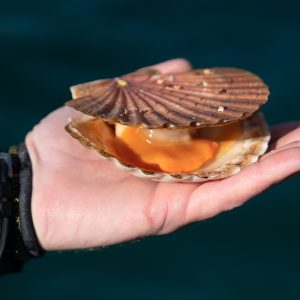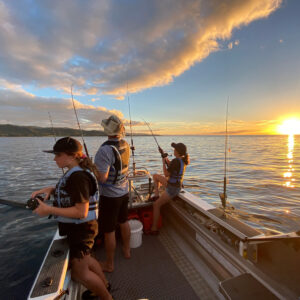The past 12 months has been a rollercoaster ride for most of us, and on the fisheries front the year has been equally undulating. After a couple of ‘nearly there’ Coronavirus-interrupted moments we finally launched the Rescue Fish campaign in late May.
What’s more, our New Zealand Sport Fishing Council fisheries team had a record-breaking year delivering a raft of submissions and advocating our interests in over 60 forums. 
Positive initiatives
In Hawke’s Bay the LegaSea team is having effective input into local processes. LegaSea Hawke’s Bay is an integral member of the Fisheries Liaison Group overseeing the 6 Wharf project and the establishment of several artificial reefs in the waters off Napier, to enhance recreational fishing opportunities.
On a broader scale we’ve finally managed to secure the two recreational representative appointments on the National Rock Lobster Management Group. We expect this will lead to more conservative, ecosystem based management decisions to protect our crayfish stocks from overfishing.
Ongoing challenges
On the flipside there are ongoing issues with the last Minister’s approval to increase commercial catch limits in some fish stocks and change blue cod fishing rules. There is growing unrest about scallop depletion around the Coromandel Peninsula and Bay of Plenty, and the prospect of losing favourite fishing possies due to Regional Coastal Plan changes.
A last minute change to new regulations applying to bluecod fishing around the South Island was contrary to agreements made at earlier stakeholder meetings with Fisheries New Zealand. There are now different daily bag limits for offshore and inshore fishing. The new rules prevent offshore fishers transiting and landing their daily bag limit in safe access points inshore along the east coast. This is unreasonable and not conducive to encouraging compliance. We are seeking sensible remedies from both Fisheries New Zealand and David Parker, the new Minister of Oceans and Fisheries.
Minister Parker is stepping into a world of pain as there are increasing efforts to use the Resource Management Act to control fishing under the guise of protecting indigenous biodiversity. Support for this RMA approach is being promoted by proponents of large no-take marine areas.
Part of the problem is that fisheries managers tend to wait until there is a crisis before using Fisheries Act provisions to protect the marine environment and biodiversity. Continued overfishing and environmental damage caused by widespread trawling and dredging is a blight on 35 years of the Quota Management System. The status quo is no longer tenable. The only real alternative to the QMS is Rescue Fish.
Rescue Fish rescue package
So far we have invested over $1 million into developing the Rescue Fish package because we understand the serious need to address depleted fisheries and biodiversity loss.
After several years of investigation and talking with experts around the world it is clear that we need to take a holistic approach to protecting biodiversity and the marine environment. This means developing new legislation to ensure higher fish stock levels and banning trawling and dredging from inshore waters.
LegaSea is promoting Rescue Fish because it encompasses so many aspects that are important to all Kiwis. It seeks to make commercial fishing more profitable, to generate much needed economic activity in neglected coastal regions, better protect the marine environment, and enable families to enjoy their day out on or near the water.
Rescue Fish will only succeed if we and the government embrace the need for a more integrated approach to fisheries management. Surely this will be part of developing a new Oceans Policy.
The prospect of a great day’s fishing or precious time with family and friends surely makes Rescue Fish the most positive way to wrap up 2020 and head into 2021.
Petition
To achieve success we need a strong show of public support for change. Please sign the Rescue Fish petition at rescuefish.co.nz/petition.





